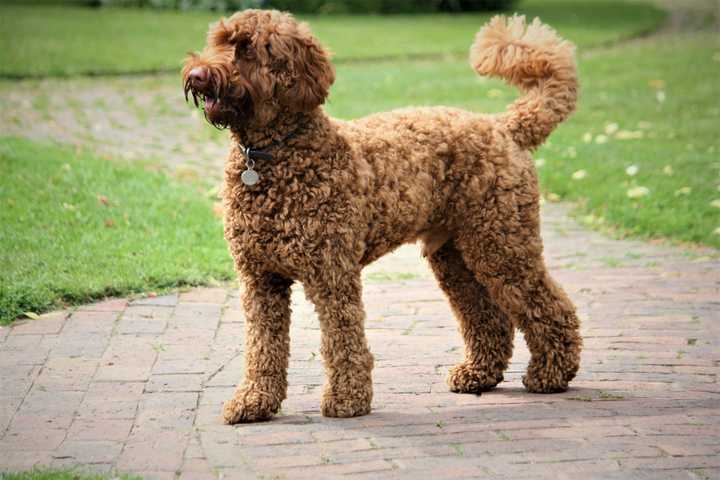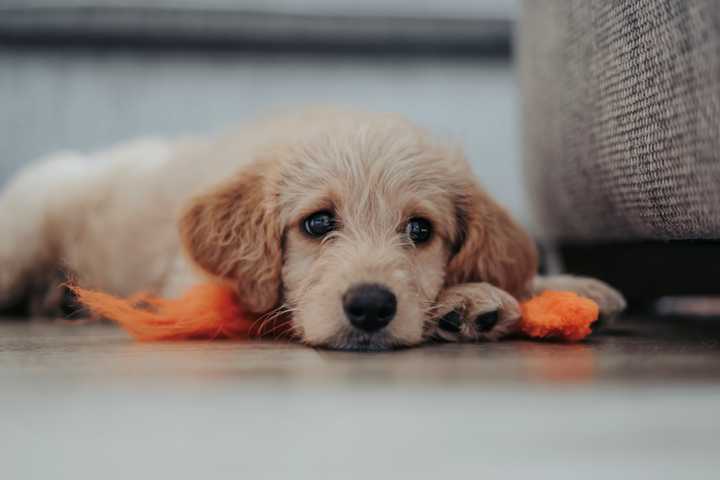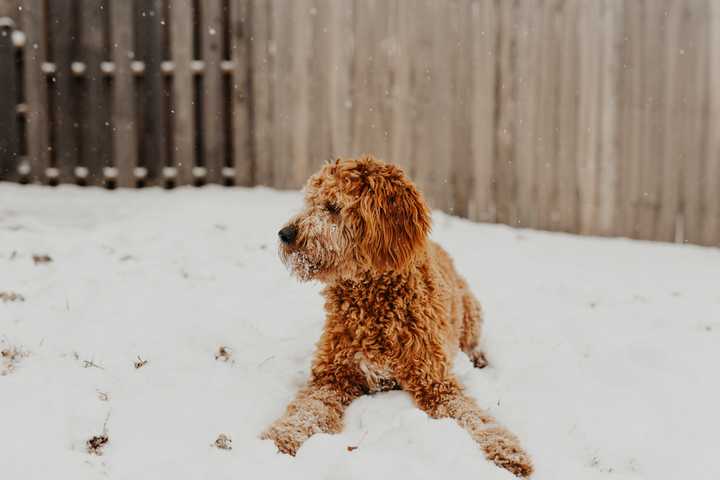Doodle dogs come in so many different coat types! If you're deciding which puppy to pick out, hopefully this will serve as a guide for you.
Curly Coat
Curly coats will begin to show up in doodles around 5 weeks of age, and can be identified by the fur around their faces (and particularly the forehead between the eyes). Is it starting to wave? This is indicative of a curly coat. Curly coats can also come in a few different varieties and like human hair, be more or less kinky depending on how much poodle is in the doodle. They are mostly non-shedding and therefore great for people with allergies. F1B doodles are more likely to have curly coats than their F1 counterparts. Curly coats require daily brushing to avoid matting.
 @brunello_the_goldendoodle on Instagram
@brunello_the_goldendoodle on Instagram
 @theodoodlebear on Instagram
@theodoodlebear on Instagram
A brushed out curly coat:
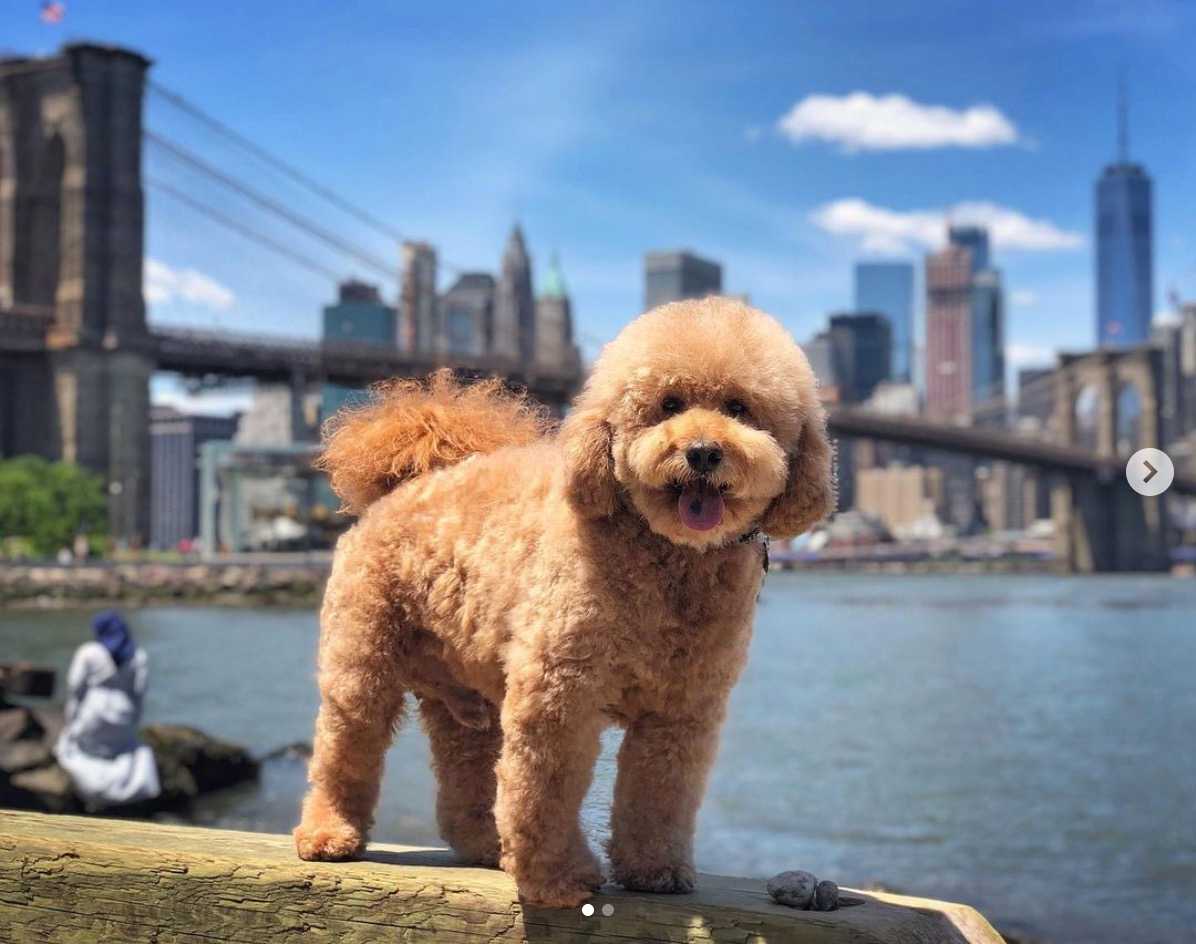 @samsonthedood on Instagram
@samsonthedood on Instagram
Wavy/Shaggy Coat
A wavy coat is the most low-maintenance of the doodle coat types. With F1 doodles, this fleecy coat is the most common. The wavy coat occurs when the dog inherits one straight and one wavy gene from its parents. It requires weekly brushing, and is mostly non-shedding (though it is possible that it will shed a bit). You may also want to pay more frequent attention to more high-friction areas like around the collar and ears to make sure your doodle is mat-free. A young puppy with a wavy coat will not have curls on their forehead, but may have some waving start to appear around week 7.
A short wavy coat:
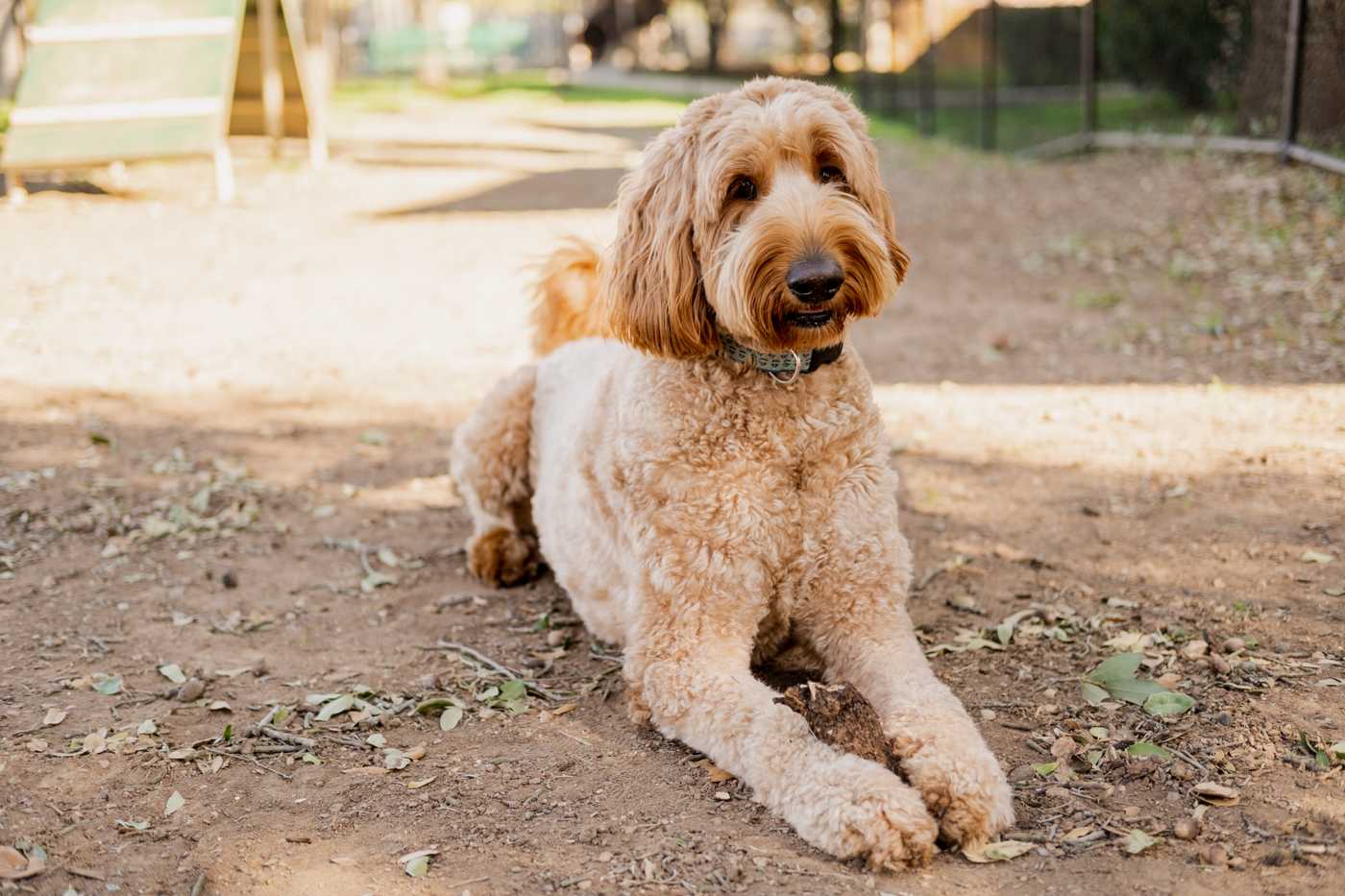 Chris Maldonado via Unsplash
Chris Maldonado via Unsplash
 @mrkevindoodle on Instagram
@mrkevindoodle on Instagram
 @samsonthedood on Instagram
@samsonthedood on Instagram
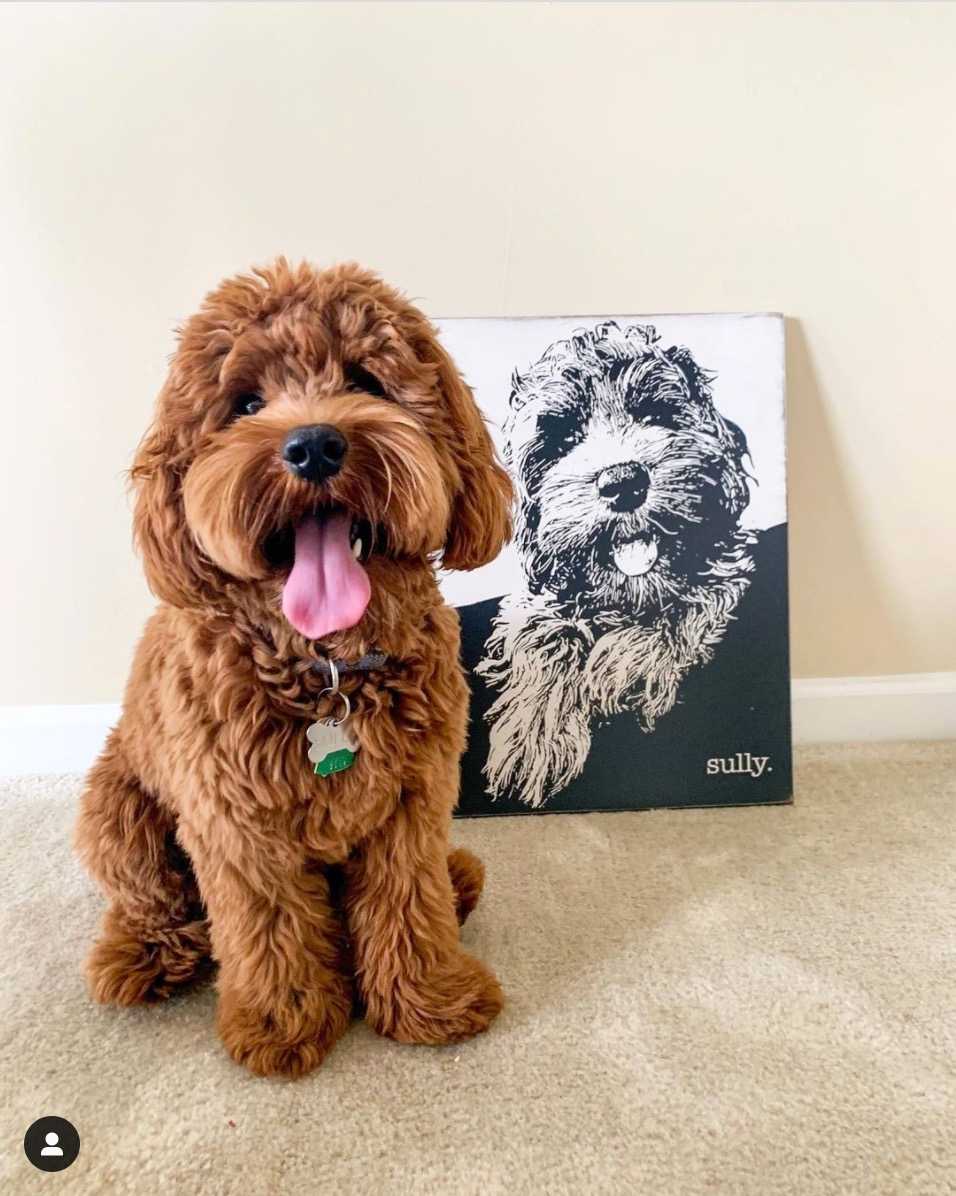 @sully_theminidood on Instagram
@sully_theminidood on Instagram
Straight Coat
Straight-coated doodles are the rarest coat type, and have coats more similar to their non-poodle counterparts (i.e. labrador or golden reterivers for labra/goldendoodles). They are considered a more sporty look and will likely shed. They will not have any curling or waving of the fur, and are more common in first generation (F1) litters. Keep in mind, a doodles coat may change over time, and usually become more curly, rather than less curly with age.
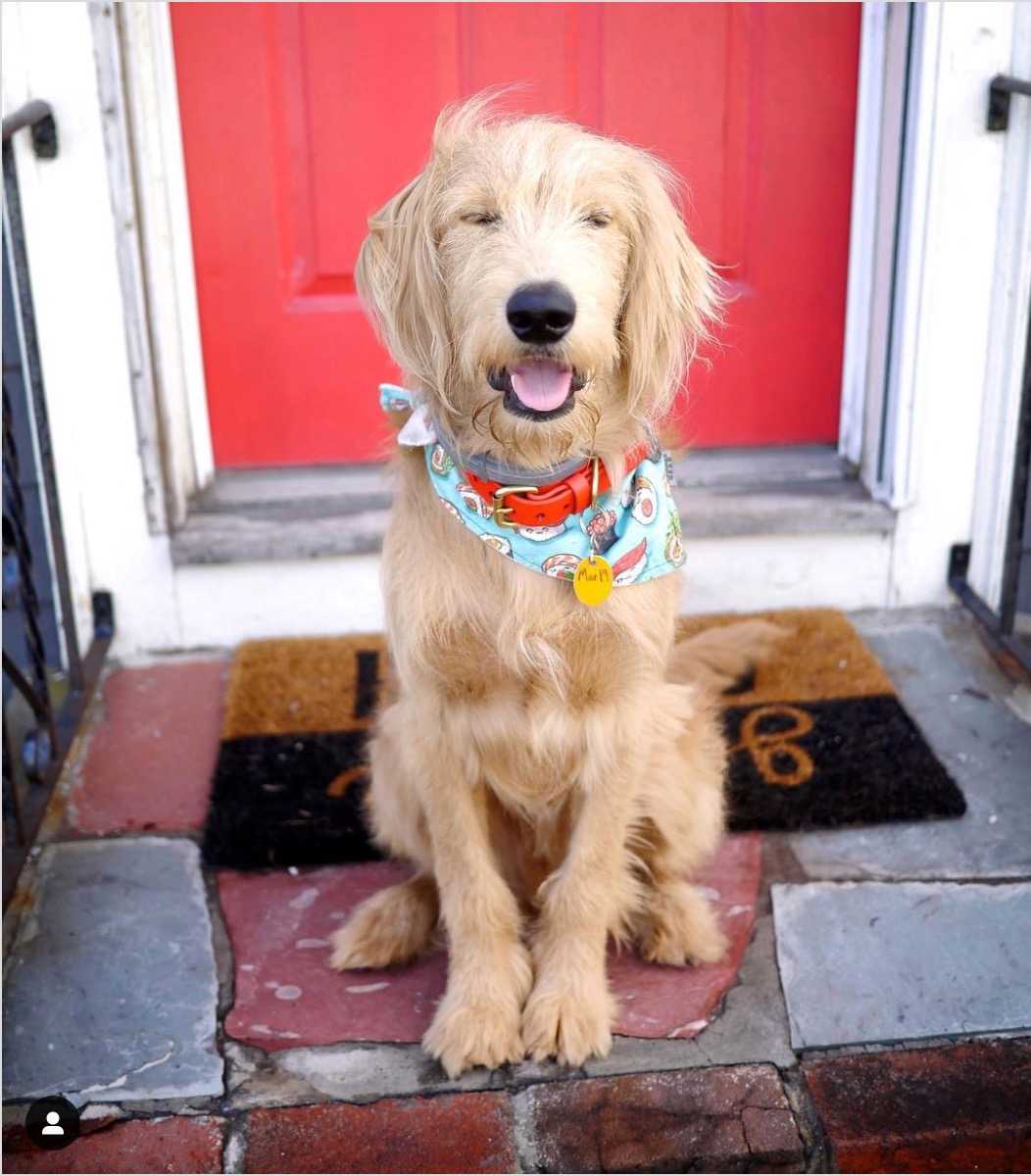 @sullyandsammy on Instagram
@sullyandsammy on Instagram
